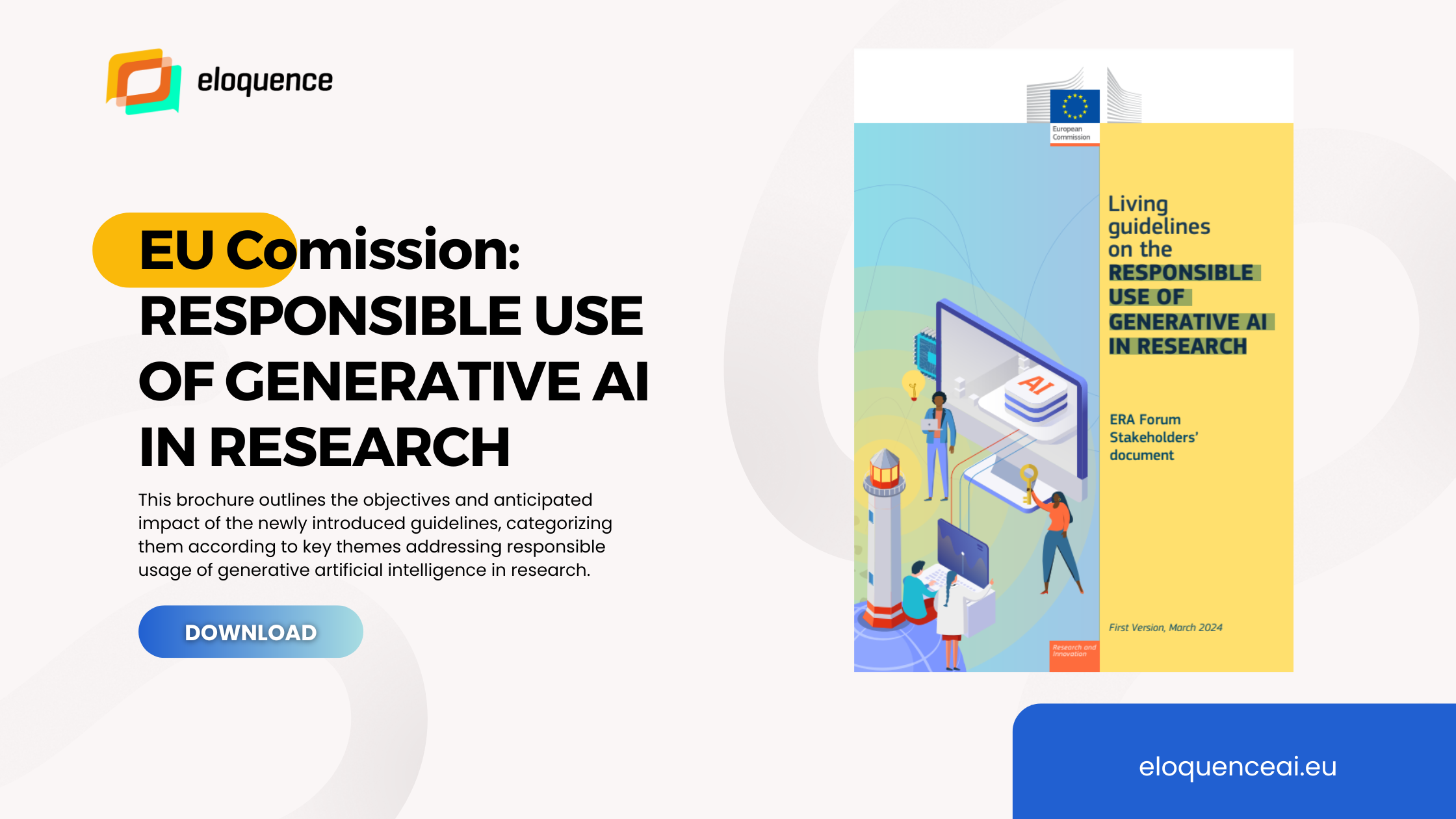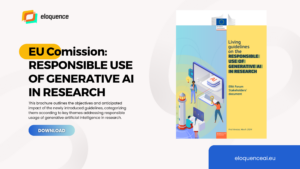The European Research Area Forum, in collaboration with the European Commission, has recently introduced a set of guidelines aimed at promoting responsible usage of generative artificial intelligence (AI) within the research community across Europe. AI technology is still revolutionizing a number of industries, including scientific research, these guidelines serve as a framework to address both the opportunities and challenges presented by generative AI.
Understanding Generative AI and Key Considerations
Generative AI tools have gained wide acceptance due to their ability to speed up tasks such as generating text, images, and code. However, it’s crucial that researchers take precautions and understand the limitations of these instruments. The possibility of plagiarism and the unintentional revealing of private information are two of the main worries. It is imperative to recognize and address biases that are constructed into AI models in order to preserve the reliability of study findings.
Transparency and Responsibility
The guidelines highlight the importance of transparency and responsibility in the use of generative AI. Researchers are recommended to respect privacy, confidentiality, and intellectual property rights by avoiding using these tools during delicate processes like peer reviews. Research organizations play a vital role in creating responsible deployment of generative AI by providing guidance, monitoring its usage, and ensuring compliance with ethical and legal standards.
Funding organizations are encouraged to assist applicants in actively implementing generative AI to promote creativity while maintaining ethical standards. It is important to understand that these principles will be subject to frequent modifications in response to input from stakeholders and the scientific community as generative AI develops.
Continuous Improvement
In conclusion, the introduction of guidelines for the responsible use of generative AI in research marks a significant step towards ensuring the ethical and transparent integration of AI technology in scientific activities. By following these guidelines, researchers, research organizations, and funding bodies can collectively sustain the public’s confidence in scientific research while making a contribution to the growth of knowledge.
These guidelines represent a collaborative effort to navigate the complexities of AI technology and its impact on research practices, highlighting the dedication to responsibly promoting innovation.
You can read full Guideline here.


